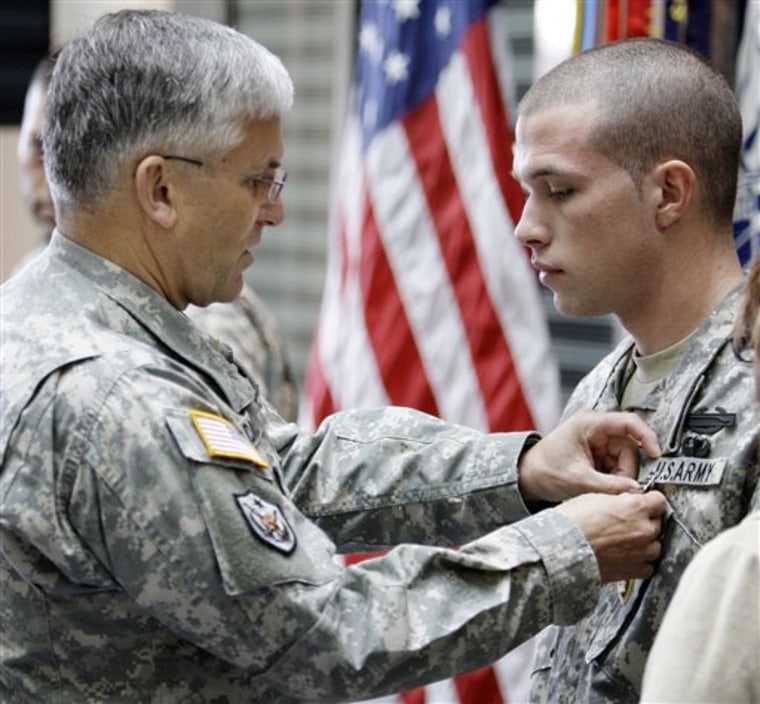After years of longer and more frequent deployments in the Army, soldiers should get more time at home as long as overall demand for troops overseas holds steady, the Army chief of staff said Monday.
Increasing the time troops have at home is probably the most important element for readying them for future assignments, said Gen. George Casey during a news conference after a Purple Heart ceremony.
With the size of the Army growing and demand holding steady, soldiers should get nearly 18 months at home starting next year. By 2011, they should get two years at home to undergo more training and spend time with their families, Casey said.
Some have been getting less than a year at home between deployments and are on their second or third tour. Soldiers and their families have been strained by 15-month deployments ordered as part of the surge in Iraq.
A reduction to yearlong deployments and the planned growth in troops should give soldiers more time away from the battlefield, Casey said. The Army plans to add 74,000 troops by 2011.
The general was at the Center for the Intrepid, a rehab facility at Fort Sam Houston, for a day designated by the Army to focus on the medical care given to wounded soldiers.
Improvement in medical care
Casey said the Army has done a lot to improve the care for soldiers since it was stung by the scandal around outpatient care at Walter Reed Army Medical Center.
"The medical care has always been first-class. We took our eye off the ball a little on outpatient care," he said.
After the scandal, the Army changed how patient care was monitored to ensure injured soldiers weren't being overlooked. He said, however, that more work is needed on the disability system.
Currently, wounded soldiers undergo an Army medical exam to determine their fitness for duty and disability payments from the service. A second exam is done by the Department of Veterans Affairs when the soldier leaves the Army.
"They conflict with each other and compete with each other, and it confuses our soldiers," Casey said.
The Army and the VA are working to develop a single medical exam to determine the level of disability but merging the two systems has proven complicated, Casey said.
